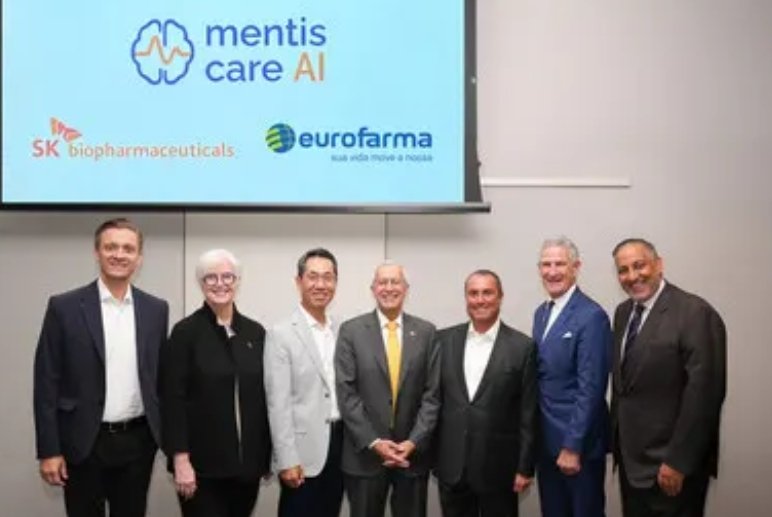
(L) Ms Karen J Miller, senior vice president, corporate development and corporate communications and (R) Mr Jason Apter, vice president and managing director, Asia Pacifc, Sigma-Aldrich
Asia Pacific (APAC) has been a region of utmost importance for Sigma-Aldrich (SA) as it has contributed more than 20 percent of global sales last year. Strengthening its position further, the company in February opened a 45,000 sq ft global shared services (GSS) Center in Bangalore to support the company globally by offering value-added capabilities to drive business growth and accelerate operational excellence.
The opening of the new GSS center follows the recent celebration of SA's 20 year anniversary of conducting business in India. The company has showcased noteworthy Asia Pacific investments in the last few years including opening a new packaging facility in Bangalore, India; opening of a new facility in WuXi, China and completion of a new SAFC Hitech precursor manufacturing facility in Taiwan.
BioSpectrum talks to Ms Karen J Miller, senior vice president, corporate development and corporate communications and Mr Jason Apter, vice president and managing director, Asia Pacifc, Sigma-Aldrich, to understand more about the new GSS center and about the company's focus on APAC.
How will the GSS center add benefit to SA's business?
Ms Miller: One of the objectives is to support our business growth whether support with new product introduction, pricing, or the work we are doing on the web to get our products positioned in a way that our product is on top of the mind when scientists do Google searches. Second is the operations in which cost efficiency factor associated with it. In order to remain competitive, we are looking at market expansion and this is an opportunity to drive market expansion. We also have such a wonderful access here in Bangalore to the kind of talent that we are looking for specifically in scientific area.
What made you choose India for opening GSS?
Ms Miller: First of all we already had an established based and an established leadership team in India. Since 2005, we have had small shared service center and then we made the decision to scale that up. And again we have had great success with the talent and quality of work here.
What are the initial objectives you have laid for GSS?
Ms Miller: We have about 130 folks today and we have capacity to house more so we are looking at scale up to that. Every single function area that we have such as IT, HR, strategic marketing, finance, has their own sets of matrix. We are looking to exceed some of the matrix that we have. For instance, we have tripled our workforce in IT in last six months. The other objective we have is talent development and making sure that we have career development paths for them. We are making sure to have a dedicated HR just for GSS to work on talent retention. We are proud of having greater than 90 percent retention.
In January this year, Sigma restructured its business. What made you take this step and since when have you been contemplating to do this?
Mr Apter: In the past, we have said, we need to get closer to customer, increase our service level, and for Asia we need to bring solutions specific to the customers. Indirectly we have been contemplating this for a long time. We not only focus on products but now we also have more organizational focus towards the specific market segments. Now we have research market business, with sub-segments of markets specific to academic, government, biopharma; the commercial business which is now focused on life science products for downstream, and after-discovery research. Now we have more discrete view on the market.
Please tell us about your collaboration with Kyoto
Mr Apter: We licensed iPS, stem cell line which allowed us to expand our product into stem cell research area which is a very hot area. It was a natural extension and we partnered with Kyoto university to license some of the products from them to add to our portfolio. We are able to support from two angles; one is supporting the research with all the consumables and also give technical expertise to them.
Please tell us about your collaboration with SoulBrain, which is an electronics company.
Mr Apter: We have been in electronics business when we purchased Epichem a while back. This collaboration with SoulBrain allows us to have a local partner that understands the Korean market and understands the region which is big for LED and SC is hot and big. This is another example of how we are ensuring that we have a regional focus of our global business. South Korea for APAC has been important part and we have done well there.
What percent of your revenue comes from APAC?
Mr Apter: Over 20 percent. APAC and Latin America we published 25 percent of our company's revenue and APAC has a lion's share in this.
How important is China and what are your comments on the China vs India debate?
Mr Apter: I would never say China vs India..Rather it will be dragon and elephant. You cant put them up against each other. Both are extremely important and to our business in Asia, China and India are most important and a significant amount of the overall growth of APAC comes from both these countries.
The company launched a new website specifically for Chinese customers. How has that move been doing for you?
Mr Apter: It is early days although we have seen a big jump in activity and we are continuing to monitor the conversion rates. By initial bump on the activity on the site, we know we are in the right direction. By customizing for our customers their experience on the web, we can create stronger relation.
Which countries apart from China and India are of key interest to SA?
Mr Apter: Japan, it is a large market and you can ignore it. South Korea is another important market for us as discussed earlier. South East Asia is emerging as an interesting market in different sectors of what we are doing and we have a successful business in Oceania. So overall the entire APAC region is important but again the two big areas of focus are in China and India.
What is the growth strategy for SA in APAC? Is it joint ventures, organic growth, acquistion?
Mr Apter: All of the above. One thing that we have been consistently saying is that in order for us to have continued success, in APAC to the levels we have enjoyed in the past, we know we are going to need to grow above market. We need to continue to retain and maintain existing business as well as adding to that business. From inorganic perspective the primary focus is making investment inorganically in the region.
Ms Miller: I agree with that. When we are looking at our M&A strategy, we are very much targeting APAC as high priority area obviously for growth that is here and quite honestly one of the considerations is utilizing a lot of our cash outside the US and hence we would love to have more acquisition outside the US in higher growth areas and APAC fits that criteria.



